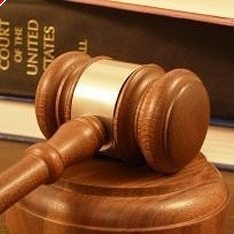By Charles Nesson
William F. Weld Professor of Law, Harvard Law School
Founder, Berkman Center for Internet & Society
The recent attempt to block internet gaming sites in Kentucky in order to shield competition from detracting dollars from gambling at horse tracks and bingo halls is not only practically impossible, but also legally unstable. The hearing this Tuesday morning aims to answer questions on jurisdiction, what would be some of the ramifications should the state succeed in this order, and whether domain names fit the Kentucky statutorily definition of a gambling device.
One of the most interesting parts of this move is that while parts of these sites may be considered unlawful under Kentucky law, a significant factual question exists about the legal status of skill-based poker sites. Part of the revolution that the internet brought to the 21st century was its ability to break down geographic barriers. Part of the challenge associated with that opportunity is that our legal infrastructure is vastly unprepared to deal with the change.
The legal test in most states is simple but ambiguous: a game is considered to be a skill game if skill predominates over chance in determining the outcome of the game. The federal government has long recognized that poker players are engaged in a “trade or business” and, for tax purposes, their income is “earned income.” Moreover, the betting portion of poker contains all the elements associated with skill because it can be learned through experience or by instruction.
It is not insignificant that poker is a great American pastime with a strong heritage in Kentucky. For more than two centuries, it has been the game of choice for both Wall Street and Main Street, and it has become a positive ambassador of American culture worldwide over the last few decades. And simply because the game has moved from kitchen tables to computer tables does not make it unlawful.
Kentucky law currently allows for a state lottery and gambling at horse tracks and bingo halls. Legal analysis reveals that the same statutes should be interpreted to include poker since it is predominantly a game of skill, not an illegal game of chance. Because of Kentucky’s recent attempt to seize online gambling domain names, online poker has become a key issue in the ongoing battle for internet freedom. Moreover, the censorship and inconsistencies of attacking online casinos while permitting online wagering on horses and lotteries is deeply hypocritical. It’s also fundamentally illegal.
On a global scale, attempts by any state or federal government to prevent its citizens from accessing certain material has a profound effect on every internet user across the globe.
In a sweeping victory for free speech rights in cyberspace, the Supreme Court struck down the Communications Decency Act in Reno v. ACLU in 1997 and granted the highest level of First Amendment protection to the Internet. Sustaining the Internet’s open infrastructure here in the United States depends on opposing the censorship that plagues the internet from being an open forum for information and communication in communist countries like China.
Tuesday’s hearing has far reaching implications to not only the gaming community, but also the champions for internet freedom, censorship opponents, and legislative and judicial communities. With about 70 million Americans and 100 million others with a vested interest in the game, it’s sure to be a full house.
Submit your review | |



